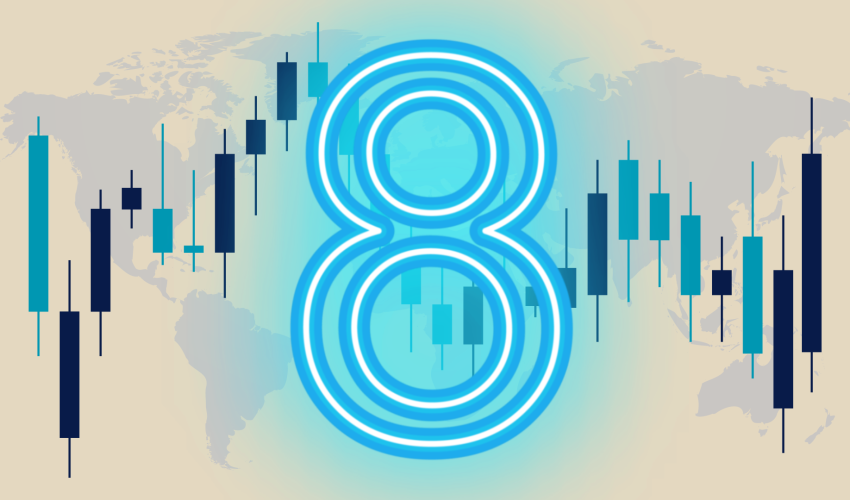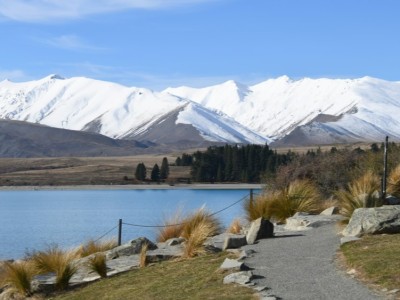Learn » Blog » Meet the Magnificent Eight
Meet the Magnificent Eight
Published on 09/09/2024

Original article published in Informed Investor.
In investing, there is an often-used term, "The trend is your friend". And when it comes to the business of investing, there is no stronger trend than the one we are entering: the rising tide of KiwiSaver capital.
This is a theme repeating itself around the developed world. A younger generation of savers are seeing their pensions rise and divesting themselves of big houses, to invest more and live off the profits.
So, with this rising tide of capital, what are the big trends that will impact what you can invest in, and what will it return? I can see eight big themes.
1. Privatisation
The first is relatively less money invested in the public stock and bond markets, and more in private markets. Why? Because plenty of big investors want to access investments unavailable to others, and to invest in companies that just want to get on with their business without the palaver of being a listed company.
KiwiSaver managers are already preparing for this. Simplicity, Milford and Booster already have well established private investment teams, with Fisher recently announcing key hires. It's already common in Australia for pension funds to have in-house private equity and venture capital teams.
2. Globalisation
Another significant trend is the concentration of listings into the larger global exchanges. When data moves at the speed of light, it's more efficient for all traders to go to a few marketplaces than many small, spread-out ones. So, for listed companies, the NZX will become even less significant and large overseas options like NASDAQ more important to target.
Some of this, in my opinion, may be due to NZX favouring the profits from its own fund management operations over running an efficient marketplace. However we’re seeing this movement globally.
3. Picking markets
The third trend I see is passive investing continuing to grow. Why? Because the world is too competitive to expect many managers in New Zealand to win when it comes to picking markets and stocks. When the largest hedge funds advertise, they have more computing power than Google, and that power is hard to beat.
Over 50 per cent of global pension assets are managed passively and that trend is likely to continue. That doesn't mean there won't be active traders out there generating liquidity; the biggest programme and quant traders are doing just that. But unless you have an enduring competitive advantage, why bother trying to beat them?
4. Cash will return
My fourth observed trend, or prediction here, is that cash will (finally) earn more than zero in bank accounts. It won't be long before every dollar you own, wherever you choose to hold that dollar, is earning something. Open banking is the key here. And given that New Zealand has around $80 billion in non-interest-earning accounts, every one per cent return on those will be another $800 million in investors' pockets and $800 million off bank profits.
5. Infrastructure funding
The fifth big trend will, all things going well, be funding of infrastructure via KiwiSaver capital. To my mind there is simply too much money in KiwiSaver, and too much need for domestic infrastructure, for them not to meet. This will require some assistance, at times, from local and central government. But eventually their paths will cross, and New Zealand will evolve towards something like the international norm of 5 to 10 per cent of pension fund investments in direct and/or unlisted infrastructure.
6. AI reveals all
The sixth trend is the triumph of the product. What I mean by this is that, in an increasingly transparent world, the best products will win. The finance industry has, for decades, hid behind distribution networks, apathy and ignorance to sell mediocre and expensive products. This has made it the most profitable industry in the world, but that party is ending.
Al will be the industry's party pooper here. It won't be long before search engines provide a proper answer to "what investments are best for me?" rather than an answer that the industry can effectively pay for via advertising dollars.
7. KiwiSaver accounts
The seventh trend is the key financial product in our lives becoming our KiwiSaver account, not our bank account. Open banking means core banking services will hang off the key store of wealth for many Kiwis (their KiwiSaver account), and not the other way around. Compulsory KiwiSaver (which I see as an inevitability over time) will exacerbate this trend.
8. Institutional housing
My final projected trend will be Kiwi housing investments becoming more institutionalised, like so many markets around the world. Forget about Du Val type failures; KiwiSaver managers will join their overseas equivalents and own a lot of rental housing and do it properly. For investors that means fewer owning rentals directly, and more investing in residential-focused housing funds. Once again, New Zealand is primed to catch up with the rest of the world on this trend.
And that, to my mind, is the future of investing. Less listed investments, less bank involvement, less active investing. More money for your cash, more importance on KiwiSaver, more infrastructure investments, better products and more homes owned via funds than directly. It all adds up, in my opinion, to a very bright future. Because in all these things it's the consumer, and not the finance industry and banks, that win. Finally.


